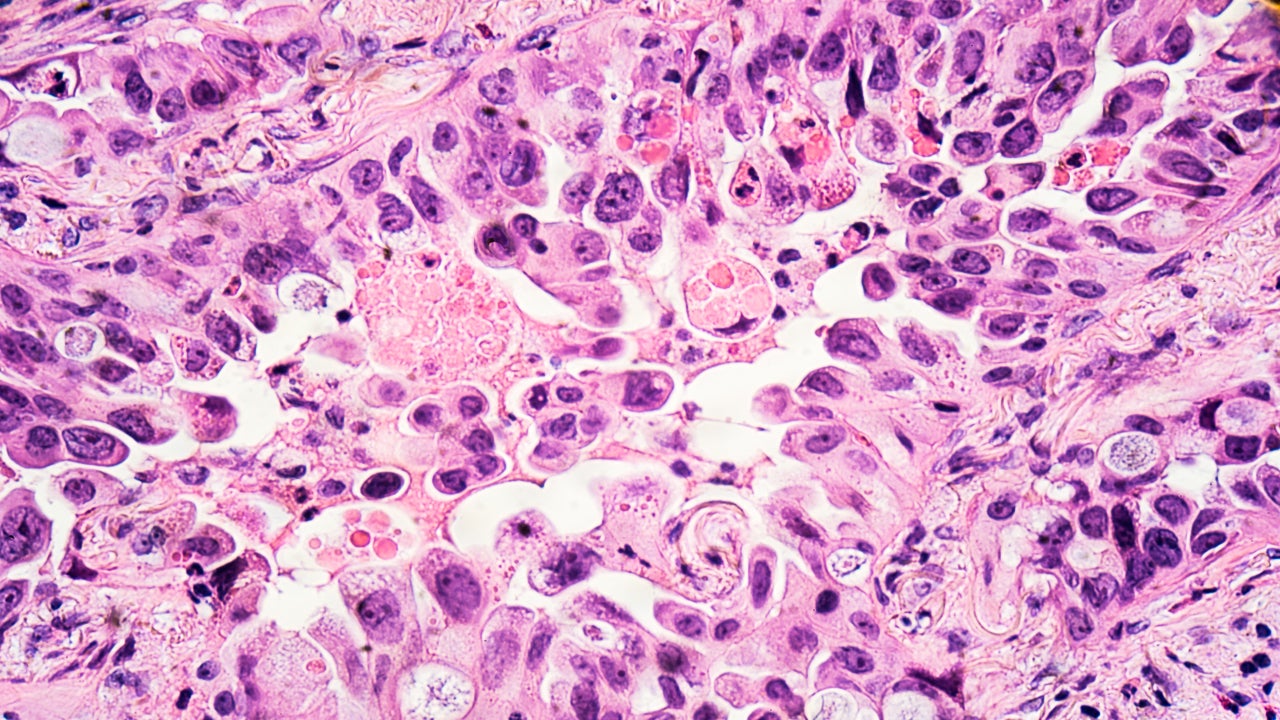Boehringer Ingelheim’s pan-KRAS inhibitor BI-1701963 and InventisBio’s KRAS G12C inhibitor D-1553 saw their respective Likelihood of Approval (LoA) scores jump by 20 and 6 points, as of 1 June. Only a few days prior, Amgen’s Lumakras (sotorasib) broke ground by becoming the first KRAS G12C inhibitor to receive an accelerated approval to treat eligible metastatic or advanced non-small cell lung cancer (NSCLC) patients on 28 May.
BI-1701963 is currently being studied as a monotherapy or in combination with two distinct MEK inhibitors in separate studies— Phase I trial with BI-3011441 and Novartis’ MEK inhibitor Mekinist (trametinib) in the Phase I study. Shanghai, China-based InventisBio is evaluating D-1553 in a Phase I/II study in advanced solid tumors.
BI had previously presented preclinical data which indicated BI-1701963’s antitumor activity against G12 and G13 KRAS, at the AACR-NCI-EORTC meeting in 2019, according to a 29 October release from the same year. The drug is designed to target several variants beyond just KRAS G12C mutations as per the company, and the first combination trial is enrolling cases with activating mutations which may include those expressed in exon 2 (G12, G13), exon 3 (A59, Q61) and exon 4 (K117, A146). Lumakras is specifically intended for those KRAS G12C-mutated NSCLC. Additionally, Mirati Therapeutics also plans to submit an NDA for its own KRAS G12C inhibitor adagrasib in 2H21, as per its 1Q results.
Prior to the Lumakras approval, BI-1701963’s LoA score was 11% while that of D-1553 was 3%. In addition to the change in the LoA score which is now at 31%, BI-1701963’s Phase Transition Success Rate (PTSR) also jumped by 6 points. Similarly, D-1553’s PTSR score increased by 7 points. PTSR is the probability, given as a percentage, of a drug progressing successfully from one development stage to the next. LoA is calculated by compounding the PTSR at each stage the drug is yet to progress through. Both metrics can be calculated for a drug by considering characteristics like therapy area, indication and molecule type.
Manasi Vaidya is a Associate Editor for Pharmaceutical Technology parent company GlobalData’s investigative journalism team. A version of this article originally appeared on the Insights module of GlobalData’s Pharmaceutical Intelligence Center. To access more articles like this, visit GlobalData.

US Tariffs are shifting - will you react or anticipate?
Don’t let policy changes catch you off guard. Stay proactive with real-time data and expert analysis.
By GlobalData




